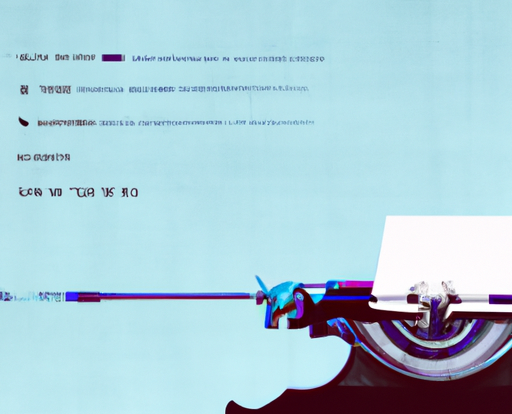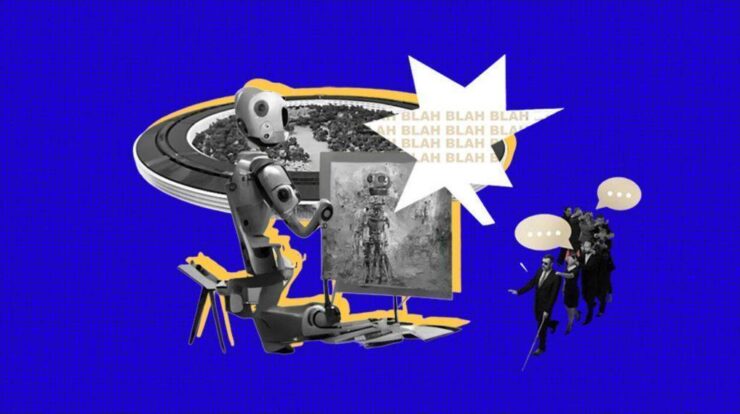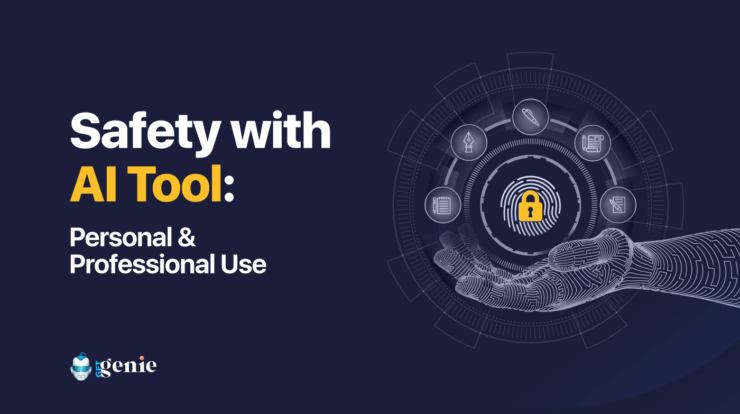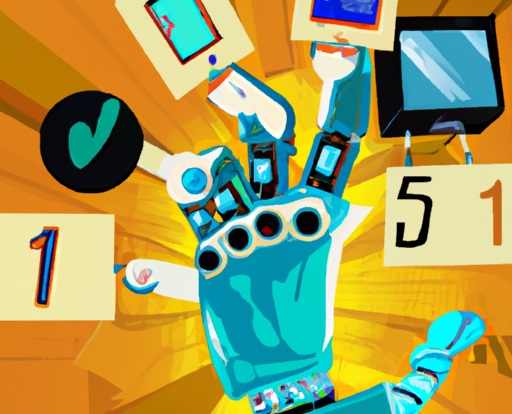
Imagine a world where books are created by artificial intelligence, pouring out stories at an astonishing speed. How long does it take AI to write a book? This question has sparked curiosity among both technology enthusiasts and authors alike. With the advancement of AI technology, the concept of machines producing literature seems plausible, but how efficient are they? Strap yourself in as we explore the fascinating world where creativity meets automation, and discover just how long it takes AI to pen a captivating story.
Factors Affecting AI’s Book Writing Time
Complexity of the Book
The complexity of the book is a significant factor that affects the time required for an AI to write it. Books that delve into intricate concepts, require in-depth research, or present complex storylines may take longer for AI to write. This is because the AI needs to process and understand the complexity of the content before it can generate a coherent and engaging book.
Size of the Book
The size of the book, in terms of word count or number of pages, also impacts the time taken by AI to write it. Longer books naturally require more time as the AI needs to generate a larger volume of text. However, it is important to note that AI’s ability to process and generate text quickly allows it to write books at a relatively faster pace compared to human authors.
Language and Genre
The language and genre of the book can also influence the time taken by AI to complete the writing process. AI models may require additional training or preprocessing steps to generate text in specific languages or to adhere to the conventions and characteristics of different literary genres. For example, writing a historical fiction novel may demand more time due to the need for AI to acquire historical knowledge and simulate a narrative consistent with the chosen period.
Dataset and Training Time
The dataset used to train the AI model is crucial in determining the book writing time. A comprehensive and diverse dataset can enhance the AI’s ability to generate content relevant to the book’s theme or genre. Collecting, cleaning, and preprocessing this dataset may take considerable time upfront but can ultimately contribute to the overall efficiency of the AI’s book writing process.
AI Model and Algorithm
The AI model and algorithm utilized for book writing significantly impact the time taken to complete the task. Advanced AI models equipped with sophisticated algorithms can process and generate text more efficiently, resulting in faster book writing. Furthermore, ongoing advancements in AI technology continue to enhance the speed and accuracy of these models, making them increasingly proficient in generating high-quality content in a shorter timeframe.
Training Time for AI
Dataset Collection and Preparation
Before an AI can begin writing a book, it needs to be trained on relevant data. The time required for this process depends on the availability and quality of the dataset. Collecting a diverse and comprehensive dataset involves meticulous research and data collection, which can be time-consuming. Additionally, the dataset needs to be prepared by labeling and organizing the data to ensure the AI model can effectively learn from it.
Preprocessing and Cleaning
Once the dataset is collected, it needs to be preprocessed and cleaned to improve its quality and eliminate any inconsistencies or biases. This step involves removing noise, normalizing data, and addressing any other preprocessing requirements specific to the chosen AI model. The time needed for this stage depends on the size and complexity of the dataset.
Training Algorithm
The training algorithm utilized significantly affects the time taken for AI to learn and generate text. Optimizing the algorithm for speed and accuracy involves fine-tuning various parameters and optimizing the training process. Advanced algorithms can reduce training time, allowing the AI to learn from the dataset more efficiently and generate text at a faster pace.
Computational Resources
The availability and quality of computational resources also influence the training time required for AI. More powerful hardware, such as high-performance GPUs or cloud-based computing platforms, can accelerate the training process. Conversely, limited computational resources might extend the training time. Therefore, the level of access to such resources is a crucial consideration in determining the timeframe for training an AI model.
Book Writing Process Breakdown
Pre-Writing Stage
The pre-writing stage involves planning and organizing the structure, plot, and characters of the book. AI algorithms can analyze existing data to generate outlines or develop initial concepts for the book. This stage may require time for the AI to optimize the plot, research, and refine the ideas based on the given parameters.
Writing Stage
Once the pre-writing stage is complete, AI can start generating the actual text of the book. Depending on the size and complexity of the book, the AI may write in chunks or continuously produce text until it reaches a predetermined stopping point. The writing stage duration primarily depends on the complexity of the content, desired word count, and the AI’s ability to generate coherent and engaging text.
Revision Stage
After the initial draft is generated, the revision stage begins. AI algorithms can analyze and evaluate the text for coherence, grammar, style, and other parameters. This stage may involve multiple iterations to refine the text and improve its overall quality. The time required for the revision stage depends on the thoroughness of the editing process and the desired level of perfection.
Editing Stage
The final stage of the book writing process is editing. Human editors or proofreaders review the AI-generated text to ensure flawless grammar, punctuation, consistency, and overall flow. The time taken in this stage depends on the length of the book and the intricacy of the editing required.
Case Studies
The AI-Generated Book: ‘The Day a Computer Writes a Novel’
‘The Day a Computer Writes a Novel’ is a book written entirely by AI. The AI algorithm utilized for this project analyzed a wide range of literature to learn the structural and stylistic conventions of novel writing. The book was completed within a month, showcasing the AI’s capacity to generate an entire novel in a relatively short time frame.
The Authors Collaborative AI Project: ‘1 the Road: A Digital Travelogue of the Future’
‘1 the Road’ is a unique book created as a collaboration between human authors and AI. The AI, trained on vast amounts of travel-related data, generated text with creative insights and unique perspectives. The project required several months to complete, as it incorporated the ideas and contributions of both humans and AI, merging their respective writing styles seamlessly.
AI Assistance in Human-Created Books: ‘The AI Who Loved Me’
‘The AI Who Loved Me’ is an example of how AI can assist human authors in the book writing process. Human authors worked in conjunction with AI algorithms, using the technology to generate ideas, refine plotlines, and assist in character development. The collaboration reduced the overall book writing time, ensuring a faster and more efficient creative process.
The AI-Authored Play: ‘AI-Pollo’
‘AI-Pollo’ is a play exclusively authored by AI. The AI algorithm incorporated insights from classical plays, evaluated dramatic structure, and generated compelling dialogue for the characters. From the initial concept to the final draft, the play was completed in a matter of weeks, demonstrating the AI’s ability to create engaging theatrical content efficiently.
Ethical Considerations
Plagiarism and Intellectual Property Rights
AI-generated content raises questions about plagiarism and copyright infringement. As AI models are trained on existing works, there is a risk that the generated content might resemble or even replicate existing copyrighted material. Recognizing and addressing this issue is crucial to ensure ethical book writing practices and protect intellectual property rights.
Ownership of AI-Generated Content
Determining ownership of AI-generated content poses ethical considerations. While the AI algorithms generate the text, the datasets, training, and optimization processes require human intervention and input. Clarifying the legal and ethical ownership of AI-generated content is necessary to maintain transparency and ensure fair recognition and compensation for the contributions of both AI and human entities.
Transparency and Disclosure
To uphold ethical standards, it is essential to be transparent about the use of AI in book writing. Readers should be made aware if a book is wholly or partially AI-generated to make informed decisions about the authenticity and intentions behind the content. Disclosure allows readers to understand the role of AI in the creative process and ensures ethical engagement with AI-written books.
Future of AI Book Writing
Advancements in AI Algorithms
Continual advancements in AI technology are expected to significantly impact the book writing process. Improved algorithms will enable AI models to generate more nuanced and engaging content, reducing the time required for book writing. These advancements may also lead to the development of AI models specialized in particular genres, allowing for even more efficient and targeted book writing.
Integration of AI into the Publishing Industry
As AI continues to demonstrate its capabilities in book writing, the publishing industry is likely to integrate AI into their processes. Publishing houses may utilize AI algorithms for generating content, collaborating with human authors, or streamlining the editing and revision process. This integration has the potential to revolutionize traditional publishing workflows, enhancing efficiency and expanding creative possibilities.
Impact on Traditional Authorship and Literature
The rise of AI book writing introduces new dynamics to the field of literature and traditional authorship. AI’s ability to generate books quickly and with high levels of proficiency may challenge the conventional notions of authorship. However, it also opens up new avenues for creativity and collaboration between humans and AI. The impact of AI on traditional authorship and the literary landscape is a topic that will continue to evolve as AI technology advances.
Conclusion
The time taken for AI to write a book is influenced by various factors, including the complexity and size of the book, language and genre considerations, dataset quality and training time, as well as the AI model and algorithm used. The training time for AI involves collecting and preparing the dataset, preprocessing and cleaning the data, optimizing the training algorithm, and utilizing computational resources effectively. The book writing process can be divided into pre-writing, writing, revision, and editing stages, each requiring different amounts of time. Various case studies highlight the accomplishments and potential of AI in book writing, ranging from AI-generated books to collaborative projects involving human authors and AI. Ethical considerations, such as plagiarism, ownership, transparency, and disclosure, need to be addressed to ensure responsible and ethical AI-generated book writing. Looking ahead, advancements in AI algorithms, integration into the publishing industry, and the impact on traditional authorship and literature shape the future of AI book writing.






